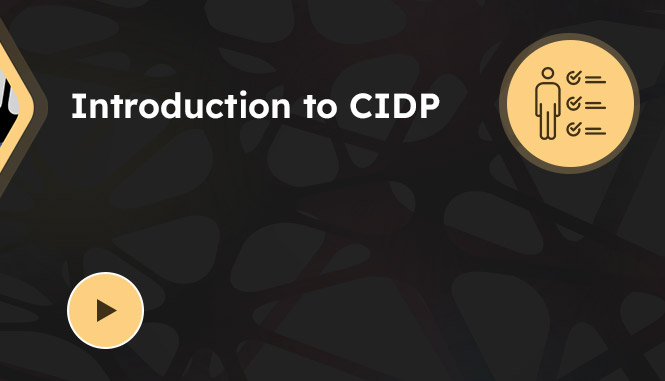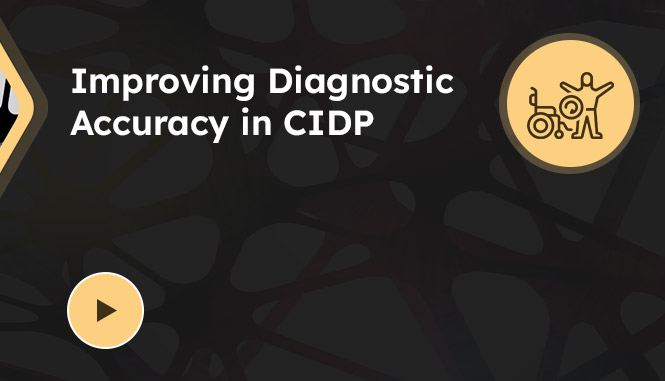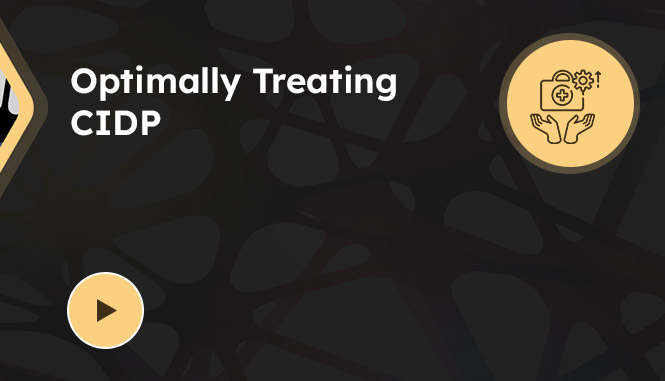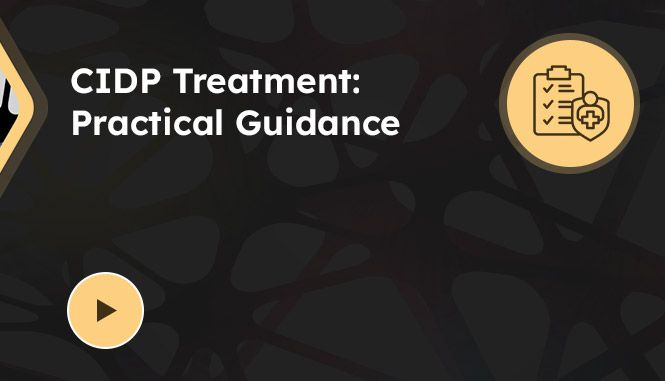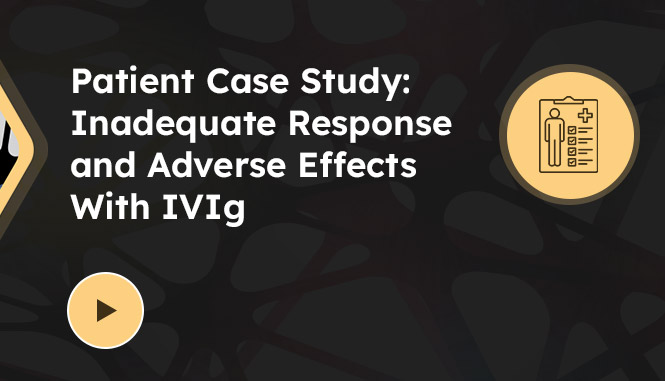Education and Training
View these video modules on important topics to mitigate diagnostic delays and optimize treatment in patients with chronic inflammatory demyelinating polyradiculoneuropathy (CIDP). There are also patient cases featuring expert insights and discussion points that you can apply in your practice as well as practical tools aligned with each content topic. Drive changes to positively impact care for your patients by adopting effective diagnostic, treatment, and/or coordination of care practices.
Do you want to bring this education to your team? Utilize the downloadable discussion guides and slide decks listed below the videos! An additional video on adult learning principles and presentation tips is provided to help you develop and lead sessions with your team.

Get tips to help deliver compelling education to your team and other audiences
Practical Guidance and Resources
Use these clinical tools and resources to enhance your clinical practice and supplement the education.
Clinical Tools
-
GBS/CIDP Foundation Centers of Excellence
- List of GBS/CIDP Foundation Centers of Excellence
-
Mayo Clinic Diagnostic Algorithm for Acquired Neuropathy
- Mayo Clinic algorithm for diagnosing different neuropathies
-
Mayo Clinic CIDP Probability Calculator
- Online calculator to determine the probability of CIDP based on clinical features and nerve conduction studies
-
Peripheral Nerve Society Digital App for Diagnosis
- Digital clinical decision support tool for diagnosing CIDP
-
Quick Guide to Assessing Impairment and Outcomes
- Guide to tools for assessing patient disability and impairment
-
Quick Guide to CIDP Variants
- Tool outlining clinical features of CIDP and its variants with potential signs of alternate diagnoses
-
Quick Guide to Diagnosing CIDP
- Tool outlining diagnostic criteria for CIDP
Patient Education and Resources
Whiteboard and background on CIDP for patients and their families
Comprehensive background on CIDP and its treatment for patients
Patient resource from the GBS/CIDP Foundation on talking to a healthcare provider
Interested in participating in a digital quality improvement program? You’ll complete an assessment to understand where your practice’s performance falls relative to available evidence and guideline recommendations, and then develop a personalized action plan to create changes in practice.
For Physicians:
- Satisfies MOC (Part IV) requirements
- Qualifies as a medium weight MIPS improvement activity
For Pharmacists:
- Enhance patient safety, increase efficiency and cost-effectiveness, and continue to increase pharmacist role in healthcare decision-making
- Meet various hospital accreditation standards
Personalize CIDP Care: Practical QI You Can Apply Now!
Begin Here
Hear from faculty on why QI is essential for impactful care of patients with CIDP:

CIDP is a challenging diagnosis because there is no single diagnostic biomarker. We arrive at a diagnosis based mainly on clinical features and piecing together different bits of data such as electrophysiology and other lab tests. One of the biggest barriers is understanding how all of this information fits together to make an accurate diagnosis.


This is a really great resource to make our time more efficient so we can understand where we need to place our energy and where we really need to focus on so that we can get the most out of our educational experience.

